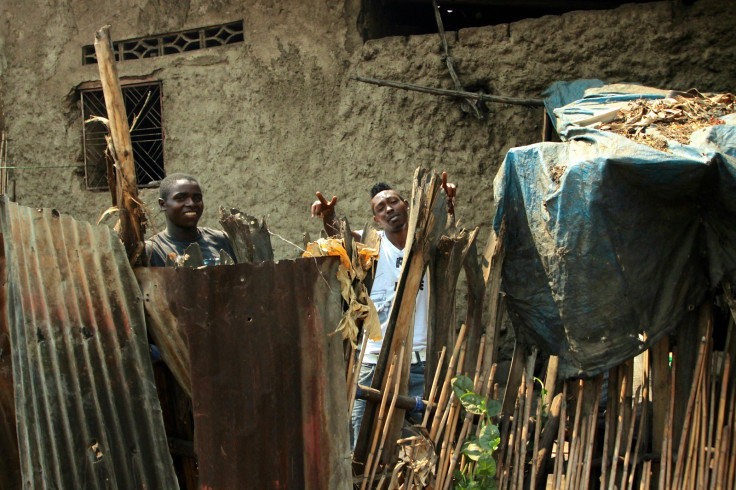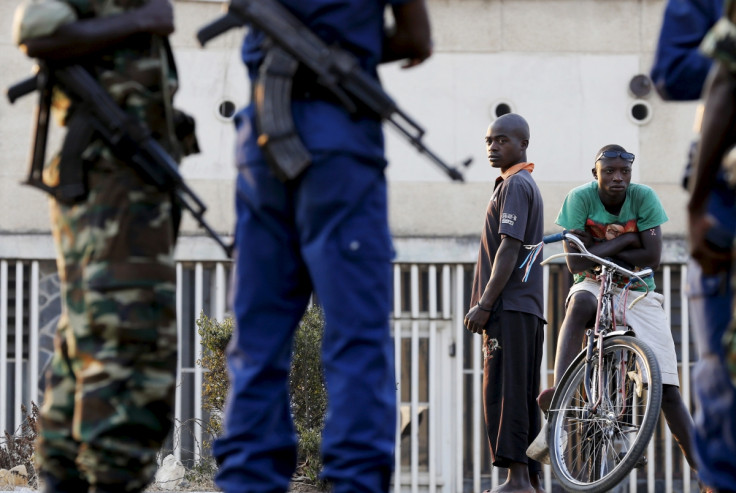Burundi: President Nkurunziza's CNDD-FDD party accuses EU of bias towards Tutsis

The Burundian ruling power has accused the European Union (EU) of ethnic bias after it imposed sanctions against four Burundians for "undermining democracy" and blocking efforts to resolve the political crisis.
Less than a week after the EU slapped the sanctions on three high-ranking security officials and close associates of Burundi President Pierre Nkurunziza, as well as a putschist who lead a coup d'etat on 13 May, the ruling CNDD-FDD has accused the EU of purposefully targeting Hutus.
"The EU's decision to take judicial sanctions against some Burundians is illegal and a provocation," the CNDD-FDD said in a statement on 5 October. "Sanctions were taken against four Burundian Hutus." The president's party said it was "deeply shocked to hear about its sanctions that only too well remind [us of] the sad story that Burundi experienced, punctuated by bloody events for over 40 years".
It asked why the EU had only sanctioned Godefroid Bizimana, the Hutu deputy head of the national police, and not the chief of police, and why it had slapped sanctions on putschist General Léonard Ngendakumana – also a Hutu – and not General Cyrille Ndayirukiye, another putschist.
The individuals all fought within the Forces pour la Défense de la Démocratie (FDD), Nkurunziza's rebel Hutu organisation that was later integrated as part of the CNDD-FDD. "Sanctions against four Burundians of the same Hutu ethnic group do not result from a known justice because there is no justice for one ethnic group in the world," the statement read.
EU accused of forgetting past 'bloody events'

The comments refer to the long-standing ethnic divisions between the Hutu and the Tutsi tribes in Burundi, which resulted in two genocides. These include the 1972 mass killings of Hutus by the Tutsi-dominated army and the 1993 mass killings of Tutsis by the majority-Hutu populace.
The ruling party added: "The EU has closed its eyes on the atrocities that were being committed by the powers in place [understood to be the UPRONA Tutsi regime] without even imposing sanctions against those responsible for the massacres and genocide directed against a ethnicity. Here everyone should ask a multitude of questions."
Members of the opposition have reacted to the comments, describing the CNDD-FDD's statement as "a divisionist discourse", also known as genocide ideology. "It is a divisionism discourse and that was their main goal. It is unheard of in Burundi. Plus these are lies because Hutu, Tutsi and Twa are all suffering from [their] bad governance," resident Bernard, from Bujumbura, said.
A student from the University of Burundi, who wished to remain anonymous, said: "I think the problem facing the Burundi is much more political than ethnic, and we Burundians are tired [of hearing] such false ideologies that only seek to discourage negotiations [between the ruling party, the opposition and civil society representatives]."
Burundi up close: Check out our Flipboard magazine
© Copyright IBTimes 2025. All rights reserved.




















